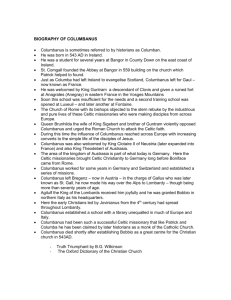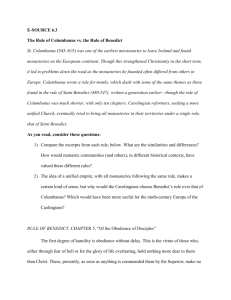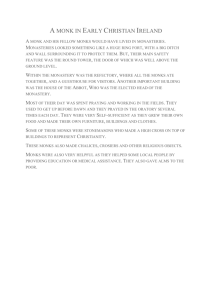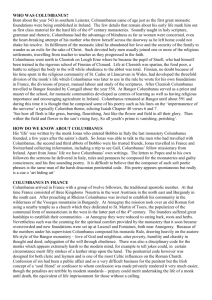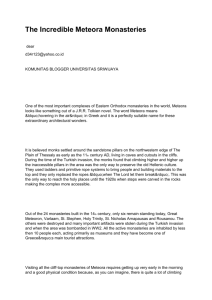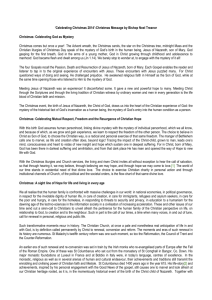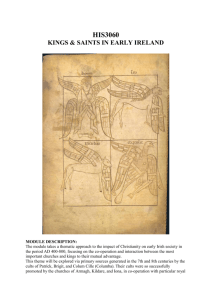Saint Columbanus (543-615) Columbanus (or Columban) was the
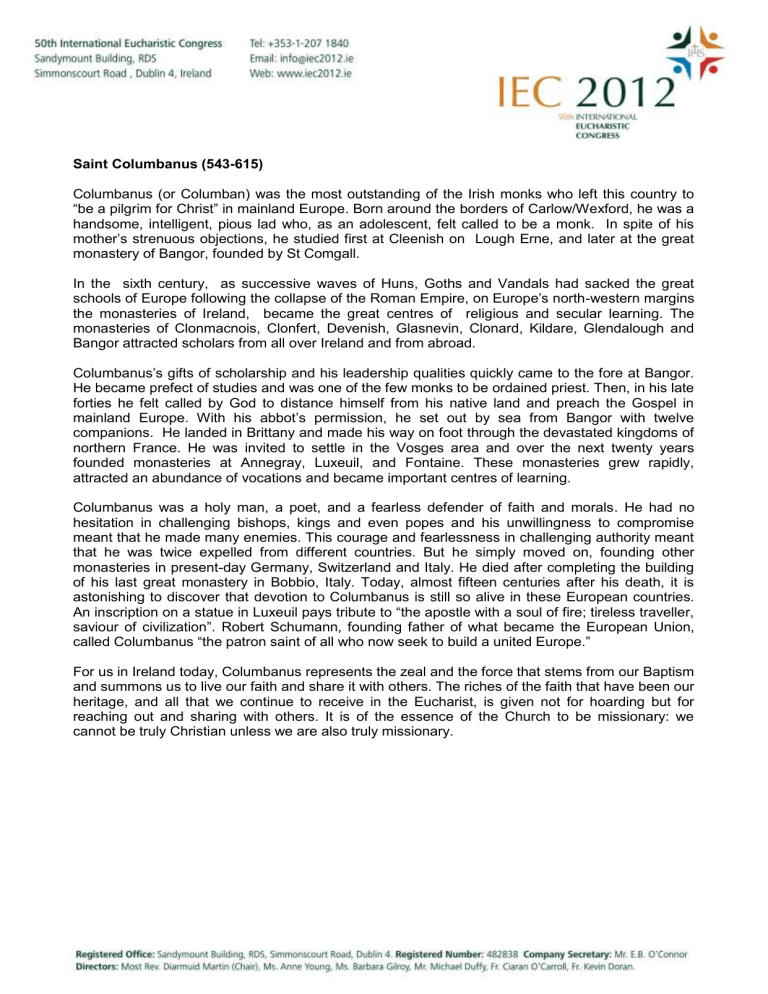
Saint Columbanus (543-615)
Columbanus (or Columban) was the most outstanding of the Irish monks who left this country to
“be a pilgrim for Christ” in mainland Europe. Born around the borders of Carlow/Wexford, he was a handsome, intelligent, pious lad who, as an adolescent, felt called to be a monk. In spite of his mother’s strenuous objections, he studied first at Cleenish on Lough Erne, and later at the great monastery of Bangor, founded by St Comgall.
In the sixth century, as successive waves of Huns, Goths and Vandals had sacked the great schools of Europe following the collapse of the Roman Empire, on Europe’s north-western margins the monasteries of Ireland, became the great centres of religious and secular learning. The monasteries of Clonmacnois, Clonfert, Devenish, Glasnevin, Clonard, Kildare, Glendalough and
Bangor attracted scholars from all over Ireland and from abroad.
Columbanus’s gifts of scholarship and his leadership qualities quickly came to the fore at Bangor.
He became prefect of studies and was one of the few monks to be ordained priest. Then, in his late forties he felt called by God to distance himself from his native land and preach the Gospel in mainland Europe. With his abbot’s permission, he set out by sea from Bangor with twelve companions. He landed in Brittany and made his way on foot through the devastated kingdoms of northern France. He was invited to settle in the Vosges area and over the next twenty years founded monasteries at Annegray, Luxeuil, and Fontaine. These monasteries grew rapidly, attracted an abundance of vocations and became important centres of learning.
Columbanus was a holy man, a poet, and a fearless defender of faith and morals. He had no hesitation in challenging bishops, kings and even popes and his unwillingness to compromise meant that he made many enemies. This courage and fearlessness in challenging authority meant that he was twice expelled from different countries. But he simply moved on, founding other monasteries in present-day Germany, Switzerland and Italy. He died after completing the building of his last great monastery in Bobbio, Italy. Today, almost fifteen centuries after his death, it is astonishing to discover that devotion to Columbanus is still so alive in these European countries.
An inscription on a statue in Luxeuil pays tribute to “the apostle with a soul of fire; tireless traveller, saviour of civilization”. Robert Schumann, founding father of what became the European Union, called Columbanus “the patron saint of all who now seek to build a united Europe.”
For us in Ireland today, Columbanus represents the zeal and the force that stems from our Baptism and summons us to live our faith and share it with others. The riches of the faith that have been our heritage, and all that we continue to receive in the Eucharist, is given not for hoarding but for reaching out and sharing with others. It is of the essence of the Church to be missionary: we cannot be truly Christian unless we are also truly missionary.
